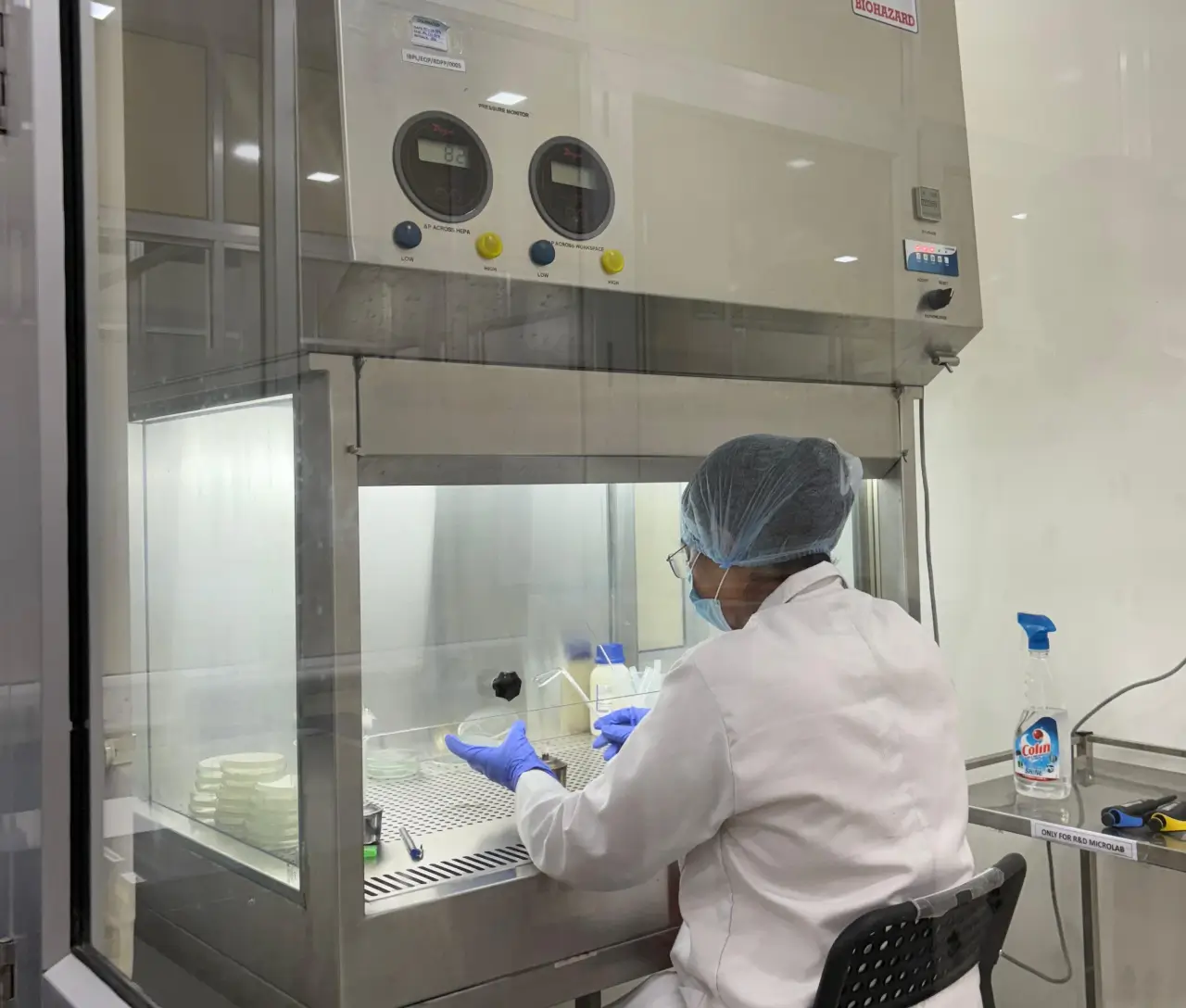Enzymes Used In Fermentation
Enzymes have had an important role since the beginning of time. These are extremely important and can help to make existence pretty easy. Old civilizations have been using enzymes in fermentation. Over the years, the use of enzymes has grown. The enzymatic solutions are contributing to the real advantage. Not only are these important for energy consumption, but they also play a crucial role in reducing environmental pollution.
What Are Enzymes?
Enzymes are proteins that have high catalytic functions. Almost all living beings make these. The natural enzymes are, however, different from the enzymes used in the fermentation process. Enzymes help to speed up the biochemical reactions occurring in human beings, plants and animals. Enzymes are beneficial for various metabolic processes, but these aren’t alive. Amino acids make up the enzymes that function differently. However, it is the catalytic capability of enzymes that makes it different from others.
What Are The Types Of Enzymes?Enzymes are classified depending on the compound they act on. Few of the common types of enzymes include the following.
- Proteases: Breaks down protein.
- Lipases: Breaks down lipids into glycerol and fatty acids.
- Amylases: Breaks down starch in simple sugars.
- Cellulases: Breaks down cellulose.
What Is Fermentation?
Fermentation refers to a metabolic process in which microorganisms’ activity helps to achieve desirable results in foods and beverages. Fermentation helps to increase flavour, preserve the taste, and also provides a lot of health benefits.
What Are The Advantages Of Fermentation?
Fermented foods are a great source of probiotics. The addition of these beneficial microorganisms helps to maintain a healthy gut by extracting nutrients from food.
- The probiotics are helpful for your immune system.
- Fermentation neutralizes the anti-nutrients such as phytic acid, which is usually found in nuts, legumes, and grains. These cause mineral deficiency. The phytates are responsible for producing starch, protein less digestible. This plays an important role in neutralizing starch, proteins, and fats.
- Fermentation plays a vital role in enhancing the minerals and vitamin content of the food. This also makes the food more accessible to absorption. Fermentation of food can help to increase vitamin B and C apart from improving thiamin, biotin, folic acid and riboflavin. The enzymes, probiotics, and lactic acid of fermented foods make vitamins and minerals easily absorbed by the body.
What Are The Different Types Of Fermentation?
Brewers prefer using different types of fermentation. Some of the most common ones include the following.
-
Lactic acid fermentation
Lactic acid bacteria are essential for the production and preservation of inexpensive foods. Lactic acid fermentation is helpful for the production of sauerkraut, sourdough, kimchi, yoghurt, and pickles.
-
Acetic acid fermentation
The starch and sugar obtained from grain and fruit eventually get fermented into condiments and sour tasting vinegar. Some of the common examples of products formed due to acetic acid fermentation include wine vinegar, kombucha, and apple cider vinegar.
-
Ethanol fermentation
Ethanol fermentation or alcohol fermentation involved the use of yeast for breaking down pyruvate molecules into glycolysis. Alcoholic fermentation is responsible for producing wine and beer.
Enzymes For Fermentation
The enzymes used in the fermentation process will vary depending on the purpose. No matter what the alcoholic beverages are made of, starch is the basic material. The addition of malt includes enzymes in the fermentation process.
Nonetheless, there have been several changes across the malting procedure in the past few years, and the distilling operations have been completely shifted. Instead of using malt, the companies are now shifting to using industrial enzymes. These industrial enzymes have a crucial role to play in two factors- liquefaction and saccharification.
The industrial enzymes used in the fermentation process are required in small quantities, while at the same time, malt is required in large quantities. The switch from malt to commercial enzymes has also played an important role in reducing raw materials’ overall costs by 30%.
Why Are Enzymes Important In The Fermentation Process?
Many fermentation procedures require enzymes to speed up the process. Alcohol does not occur without the use of amylase enzymes since these are responsible for breaking down starch into simple sugars. Moreover, fermentation is never possible without enzymes.
Fermentation Enzymes
Infinita Biotech brings about some of the best fermentation enzymes for the convenience of users. These enzyme packages are of different sizes. They are approved by the government and can be easily stored at 4-8°C. These enzymes are effective for around 36 months. However, it is extremely necessary to be careful about the dosage of enzymes in the fermentation process.
The enzymes used in the brewing industry include protease and hydrolase enzymes. The enzymes are mostly added during fermentation, maturation and mashing procedure.
Low-Calorie Beer
Calorie-conscious consumers can enjoy the taste of reduced-calorie beer because of the involvement of enzymes in the brewing procedure. The main ingredients used for the production of beer include rice, barley and grains. These grains have a crucial role to play in converting carbohydrates to alcohol in the fermentation procedure.
Simple carbohydrates are turned into alcohol, and eventually, the complexity increases. The enzymes used in the fermentation process help to convert these complex sugars into simpler ones. As a result, the desired amount of alcohol content is achieved in the beer with only a few grains. As a result, you get to relish a low-calorie beer in no time.
Clear Fruit Juice
Ripe fruit-derived juices are rich in pectin, which provides a cloudy appearance to the juice. However, not everyone likes this taste. Pectinases is a kind of enzyme that acts on pectin, thereby making the juice crystal clear. This provides stability, appearance and improved texture which is often appreciated by the consumers. Pectinases are naturally present in fruits, but many manufacturers also add extra pectinases. Using enzymes in the fermentation process of juice only helps to ensure the reduction of waste and controls costs. Moreover, sediment-free juices are likely to get more sales than the other ones.
Why Do Brewers Use Enzymes In The Fermentation Process?
Enzymes help to make brewing easy and effective. The brewers have been using enzymes for a long time to maintain the production quality even with the use of raw materials. The enzymes allow brewers to use local raw materials, thereby lowering CO2 emissions and creating a local market for the farmers. The use of enzymes in fermentation also reduces water, energy, and provides a better supply chain logistics system.
Enzymes are used in fermentation hell to provide better solubilization during the mashing process. This helps to get better filtration cycles and higher yields. Beer’s foam is one of the main reasons why beer is so popular. The use of these enzymes in fermentation provides a consistent foam without compromising on the quality and taste. Infinita Biotech has some of the best fermentation enzymes that provide great taste and eventually help avoid diacetyl formation during that fermentation process.
What Is The Source Of Enzyme In Alcoholic Fermentation?
The breakdown of sugars due to the presence of yeast contributes to the alcoholic fermentation process. The pyruvate molecules, glycolysis are formed in the process. Glycolysis of the glucose molecules leads to the formation of two molecules of pyruvic acid. Brewing is one of the oldest foods processed, followed by mankind. Over the years, beer production technology has only improved. The use of enzymes has only helped to speed up the process.

 Summarize this Article with AI
Summarize this Article with AI






